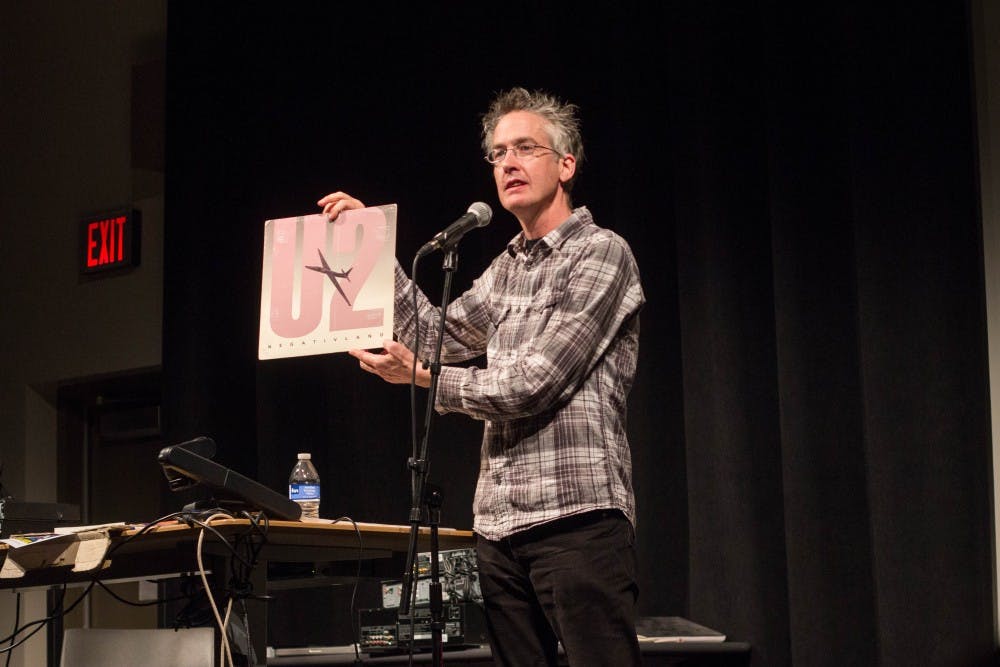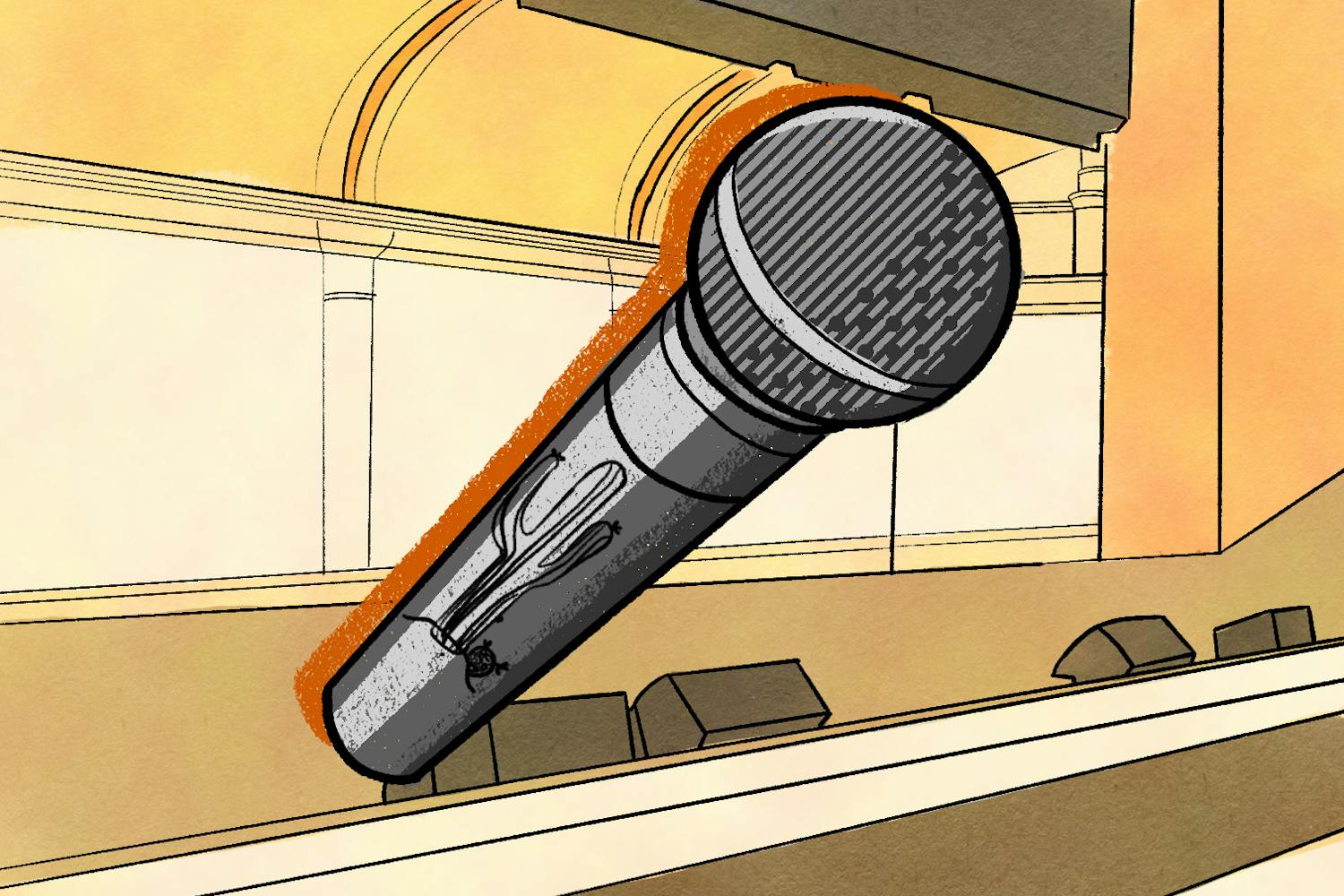Mark Hosler, co-founder of experimental music project Negativland, came to ASU on Friday to screen films and talk about his influence on music samples and copyright issues.
The group rose to prominence due to its sometimes controversial take on issues such as copyright, religion and corporate control.
Operating inside of a legal gray area for music rights, the music Negativland produces sometimes does not have a clear copyright. In fact, a few of its pieces have came under fire by corporate lawyers and deemed “illegal.”
Famously, the group faced controversy when its 1991 release, "U2 (EP)," caught the attention of U2’s management for unauthorized use of samples, sparking an intense legal battle.
Being pre-Internet, Negativland found its samples for use in the likes of thrift stores, radio stations and recorded phone conversations. When piecing together the separate pieces of media, Negativland aims at forming a narrative and expostulating on a pressing issue.
Hosler said the project often likes to include humor and does not like to take itself serious.
The films made by Negativland share the same artistic form as the music, which Hosler terms collage.
A short film titled “Guns” was screened first. The movie was a collection of short clips of black and white films and commercial ads of actors holding, firing or speaking about guns.
Interspersed was historical footage such as the famous film of the Kennedy assassination and war footage. As the video progressed, the narrative moved from harmless toying with guns to more violent images of war and death. Through the chopping and splicing of film, Negativland wants to deliver a commentary on the issues of guns as a whole.
Hosler stated that when putting together material, the group sometimes obsessives about miniscule details and the careful listener will garner meaning out of every audio and visual moment. The group wants the listener to work to figure things out.
The next short was a spoof on Mel Gibson’s "Passion of the Christ," titled “The Mashin’ of the Christ." It was composed of video clips of Jesus being whipped over a more upbeat techno beat with the mantra “Christianity is stupid” pronounced as chant.
Negativland likes to tackler big issues in its art. The group ask questions and hope its art provides answer. As Hosler advises young artists, the best way to work the creative process is to ask a question and watch the art take a direction you would not have anticipated.
“Christianity is Stupid” was the breakout hit for Negativland and launched its national notoriety, and the publication "Rolling Stone" covered the group.
At the end of the lecture, Hosler talked about the issue of copyright that Negativland faced so often in its career. He said he felt hopeful for the new generation, that doesn’t see copyright infringement as a threat to the creative process.
“One of the ways progressive social change happens is that you don’t change someone’s mind, they have to die," Hosler said. "People die off and with them dies a conservative viewpoint."
Reach the reporter at lsaether@asu.edu or follow @looooogaaan on Twitter.
Like The State Press on Facebook and follow @statepress on Twitter.




